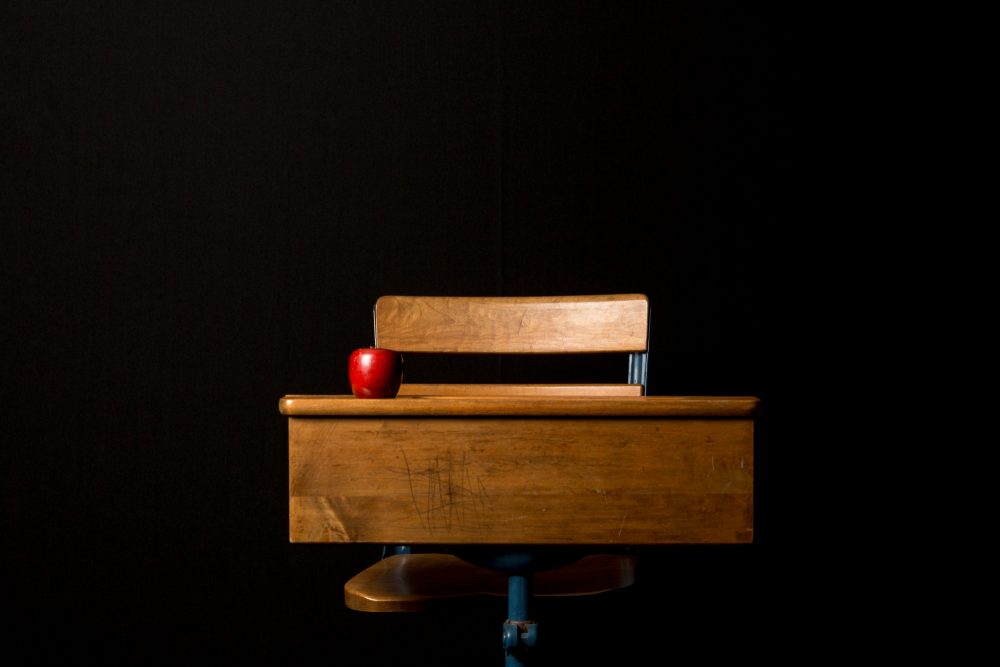Advertisement
Yes On Question 2: The Case For Raising The Cap On Charter Schools In Massachusetts

Editor's note: Today, Cognoscenti features opposing points of view on Ballot Question 2, which, if passed, will raise the cap on new charter schools in the state. A view from the other side of the charter schools debate is here.
COMMENTARY
Our son attends the Belmont public middle school, and we couldn't be happier with the quality instruction and emotional support he gets from his teachers. On back-to-school night, many of them sported buttons urging a "no" vote on Massachusetts's charter school ballot question.
Hey, nobody’s perfect.
Fogbound in exaggerated claims, pro and con, the debate over Question 2 has left some progressives running aground with their principles. This is the central fact: Massachusetts charters — which are public schools, albeit unshackled from some regulations and union requirements to test-run innovative approaches — have been a lifeline to many students. If we care about inequality as much as we claim, we should approve the ballot question, which would either allow up to 12 new charters a year statewide or open existing charters to more students.
Fogbound in exaggerated claims, pro and con, about charter schools, the debate over Question 2 has left some progressives running aground with their principles.
Lawmakers earned their pay in 1993 when they approved the Education Reform Act, which helped make our public schools the envy of the nation through a baseline of funding, standardized testing (the Massachusetts Comprehensive Assessment System, or MCAS) and charter schools. Yet for all that the act achieved, some schools in the state continue to fail too many students.
“The gap between the academic performance of more affluent students and those with fewer resources persists despite two decades and $3 billion in new state tax dollars invested in district schools,” the act’s legislative authors recently editorialized. “A majority of students who attend traditional urban district schools are in schools ranked in the bottom 20 percent statewide. Most of these children are poor, black, or Latino, and often immigrants.”
Enter charters. A Stanford study three years ago found that, by virtue of attending them, Boston students got the equivalent of an extra 12 months in reading classes per school year, and an additional 13 months in math.
Research by Harvard and MIT found that Massachusetts charters vary in quality, which is true of public schools generally. But their key takeaway is that charter school students are doing much better than they would have in their local, traditional public schools.
The Bay State Banner reported that, at the Edward W. Brooke Charter Schools last year, “More black Brooke students topped the [PARCC] math test than the total number achieving that result in grades 3 through 8 in all Boston Public Schools.” The paper's editors noted, “There is an assumption that students in schools in high income areas will outperform students from families with lower income. ...However, Brooke students outperformed the affluent towns of Weston, Newton, and Belmont on the PARCC test.”
For special needs students and those learning English, an MIT study last year was unequivocal: "Charter attendance boosts achievement similarly for special needs and non-special needs students. Charters also increase the likelihood that special needs students meet high school graduation requirements and earn a state merit scholarship."
Some Question 2 opponents dismiss inconvenient facts. For one, charters here tend to be more rigorously regulated than in other parts of the country, where for-profit charters often chase money rather than better lives for kids. Another: Admission to charter schools is by random lottery, not exclusive selection.
Amid claims by some that charters cook the academic books by flunking out students and foisting them on traditional schools, The Boston Globe studied the 2011-12 school year and found that only 73 students had left Boston’s charter schools. Not all of them were flunked, and even if they had been, those 73 were among a total public-school population of 57,000 — "way too few to skew any test scores” in charters’ favor, the paper reported.
That leaves the main gripe: Charters are vampires, sucking funding away from traditional schools whenever students leave for one. But the Massachusetts Taxpayer Foundation reported that charters received only 4 percent of the state’s public school funding, commensurate with the 4 percent of public school students who attend them.
...by virtue of attending [charter schools], Boston students got the equivalent of an extra 12 months in reading classes per school year, and an additional 13 months in math.
It’s true that some costs of running a school remain fixed, even when a student leaves for a charter. It's also true that the state doesn't always fully fund reimbursements for students that leave the public system for charters, but then, schools receive no reimbursement when their students depart for out-of-district schools or for regional vocational schools, as The Globe pointed out.
Charters are not a panacea. Being pro-charters is not the same as being anti-traditional schools. Charters are just one of several strategies that can — do — help children who are not blessed with a good traditional school or the wealth to afford private school. The demand for news charters is greatest in large cities that are at or near the cap imposed by law.
As a blue state, Massachusetts supposedly cares about inequality. Question 2 will put that professed virtue to a test on Nov. 8. As of this writing, the waitlist for the state's charter schools was 34,000 students long.
